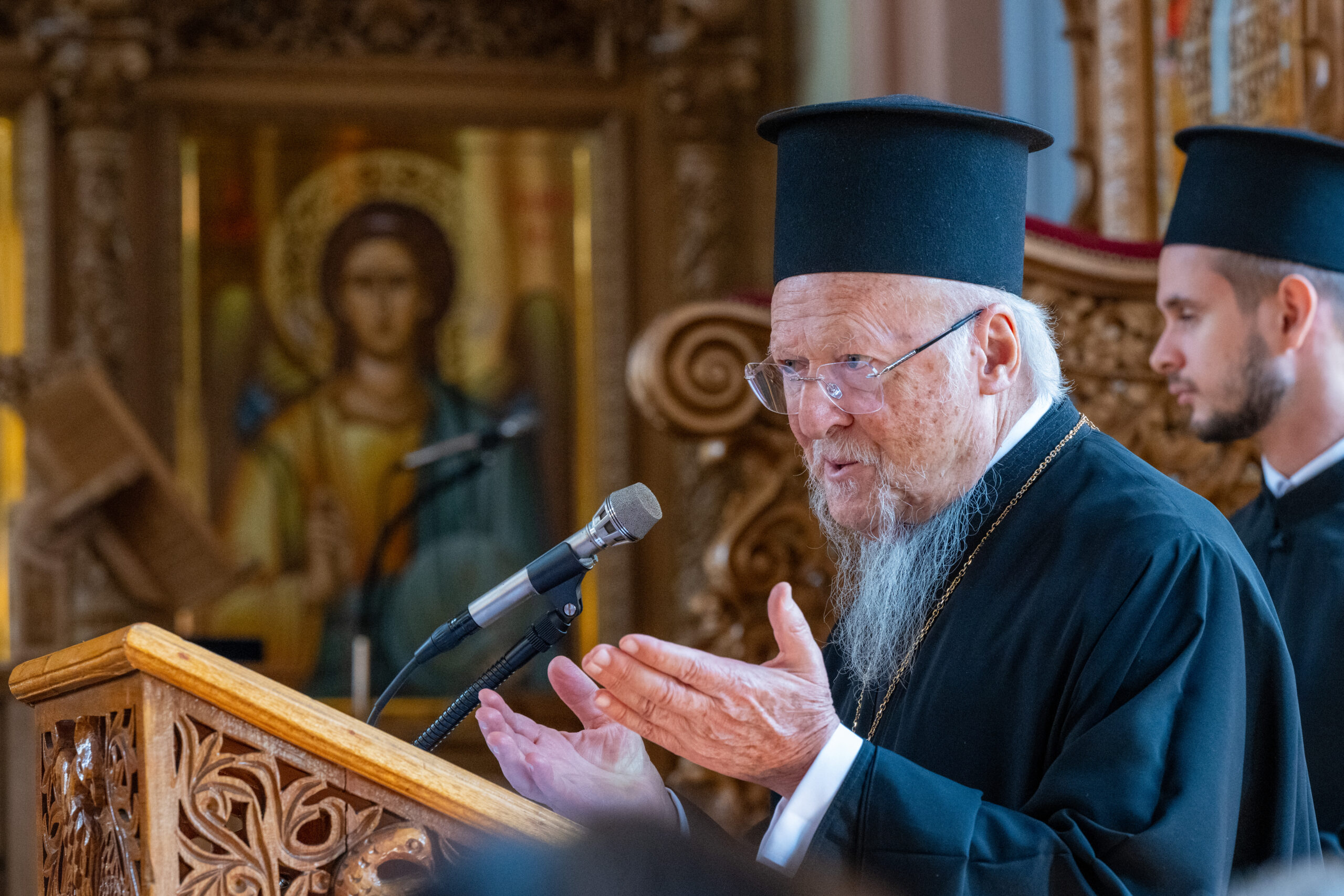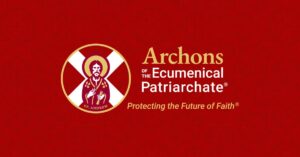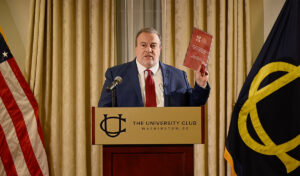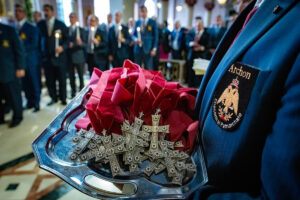September 1 is the first day of the ecclesiastical year, the Indiction; in 1989, His All-Holiness Ecumenical Patriarch Demetrios of blessed memory proclaimed it also the “Day of Prayer for Creation.” Every year since then, September 1 has been a day of particular reflection on the environment and our responsibility as Christians to be responsible stewards of God’s creation. This year, as in past years, His All-Holiness Ecumenical Patriarch Bartholomew has issued a Patriarchal Encyclical for the New Indiction, centering upon this Christian responsibility of environmental stewardship.
His All-Holiness began by glorifying God “for the uninterrupted and bounteous fruitfulness of the initiatives of His Holy Great Church in the field of creation’s protection.” He noted that “the Ecumenical Patriarchate not only highlighted the seriousness of environmental issues from an early stage, but also focused attention on their foundational causes—which are inner, spiritual, and moral—and proposed solutions based on an Orthodox eucharistic and ascetic ethos.”
In fact, during his extraordinary thirty-four years of global ministry as Ecumenical Patriarch of Constantinople, Ecumenical Patriarch Bartholomew has made care for the environment such a central aspect of his message that he observes in his new Patriarchal Encyclical that “Orthodoxy, in her faith, divine worship, and witness to the world is, one could say, the eco-friendly form of Christianity.”
Consequently, His All-Holiness explains, “the proclamation of the Feast of the Indiction as a day of prayer for the protection of the natural environment was not merely a reaction to the contemporary ecological crisis, but a natural extension of the Church’s life as ‘applied ecology.” He reminds the faithful, as well as the world at large, that “from the beginning, we declared the inseparability of respect for creation and the human person, revealing the common root and interconnection of environmental and social problems.”
It is on the subject of this interconnectedness that His All-Holiness bestows upon us some of his most penetrating and powerful insights. “Alienation from God,” he explains, breeds a possessive and exploitative attitude and behavior toward creation and fellow human beings, while life in and according to Christ is a source of environmental sensitivity and philanthropic action.” Thus responsible care for the environment will flow naturally from the depth of the individual’s Christian commitment: “As the Lord said: ‘Every good tree bears good fruit, but a corrupt tree bears evil fruit. A good tree cannot bear evil fruit, and a corrupt tree cannot bear good fruit’ (Matthew 7:17–18).”
In the same vein, the Ecumenical Patriarch observes that “respect for spiritual values sharpens our discernment of what is good and what must be done.” He argues compellingly against a shallow utilitarianism and pragmatism that would disregard the very idea of human beings as stewards of God’s creation, warning against “the entrapment of the human being in the earthly, that is, to a shrinking of his freedom into pragmatic choices and decisions, always intertwined with superficial views of reality and with the identification of the good with ‘what happens to be useful.’”
His All-Holiness calls for an “ecological repentance” that would involve “a radical change in mindset and behavior toward creation,” particularly in light of “the pandemonium of war cries, bombings, missiles and explosions, which drowns out the cry of the innocent victims of merciless violence and the groaning of creation.” He sounds a chilling warning: “The future of life on our planet will either be ecological and peaceful—or nonexistent.”
The Ecumenical Patriarch has, however, noted that there has been a growth in awareness on this issue (due not least to his own efforts, although His All-Holiness’ profound humility would prevent him from stating that). In his Message for the Beginning of the Ecclesiastical Year and the Solemn Day of Prayers for Natural Environment of September 1, 2023, he stated: “We further express our satisfaction that people have definitively understood the immediate connection between ecological and social issues, and especially the fact that the destruction of the natural environment primarily affects the poor among us.”
In that message, His All-Holiness took particular note of the devastating environmental effects of war: “It is in this context that we must also include and appreciate the terrible effects created by the invasion of Russia in Ukraine, which is associated with horrible ecological devastation. Every act of war is also a war against creation inasmuch as it is a grievous threat against the natural environment.”
The Ecumenical Patriarch also stressed once again the spiritual element of environmental stewardship: “Holy Communion is not only our union with God and others, but also the assumption of food, the acceptance and appreciation of the natural environment, the incorporation and not merely consumption of matter. The sacredness that accompanies such an attitude, the divine shudder that pervades such a relationship, is the diametrical opposite of Technology and the answer to our ecological problem.”
The Archons of the Ecumenical Patriarchate are grateful for the opportunity to serve “the Green Patriarch,” and to work to bring his prophetic environmental vision to full fruition in a world that so desperately needs that vision.





